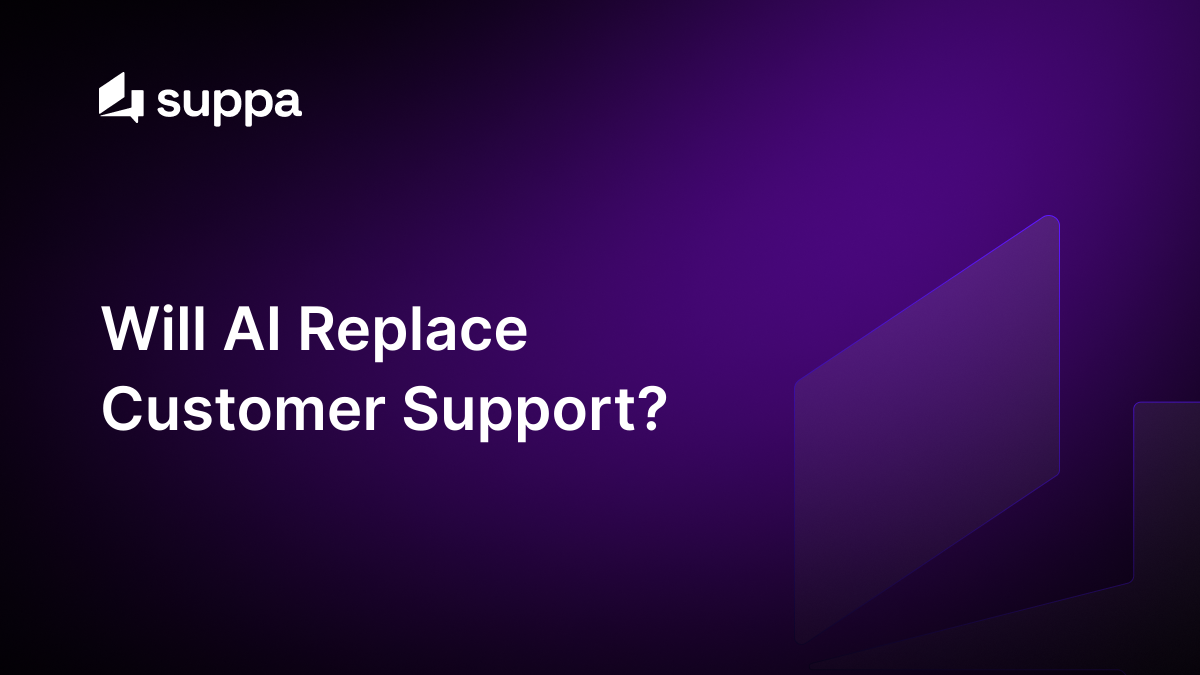
Will AI Replace Customer Support? The Future of Customer Service

Table of Contents
- Introduction
- The Rise of AI in Customer Support
- Benefits of AI in Customer Support
- Challenges and Limitations of AI in Customer Support
- The Human Touch: Why Human Agents Are Still Crucial
- The Future: Human-AI Collaboration in Customer Support
- Preparing for the AI-Driven Future of Customer Support
- Conclusion
Will AI Replace Customer Support? The Future of Customer Service in 2024
In recent years, the rapid advancement of artificial intelligence (AI) has sparked debates across various industries. One area where AI is making significant strides is customer support. As businesses try to improve efficiency and customer satisfaction, many are turning to AI-powered solutions. But the question remains: Will AI replace customer support entirely? Let’s dive deep into this topic and explore the future of customer service.
The Rise of AI in Customer Support
AI has already made its mark in customer service, with chatbots and virtual assistants becoming increasingly common. According to a report by Gartner, as 2022, 70% of white-collar workers are interacting with conversational platforms on a daily basis. These AI-powered tools can:
- Provide 24/7 support
- Handle multiple queries simultaneously
- Offer quick responses to common questions
- Assist with basic troubleshooting
Many companies have successfully implemented AI in their customer support strategies, leading to improved response times and customer satisfaction rates.
Benefits of AI in Customer Support
Increased Efficiency
AI can handle a large volume of queries instantly, reducing wait times and improving overall efficiency. This ability to scale support operations without a proportional increase in costs is a significant advantage for businesses.
Consistency in Responses
AI-powered systems ensure consistent responses across all customer interactions, maintaining a uniform brand voice and reducing the risk of human error.
Data-Driven Insights
AI can analyze vast amounts of customer data to identify patterns, preferences, and potential issues, enabling businesses to make informed decisions and improve their products or services. McKinsey reports that AI can increase customer satisfaction scores by up to 20%.
Cost-Effective
In the long run, implementing AI in customer support can lead to significant cost savings for businesses, as it reduces the need for large support teams to handle basic queries. Juniper Research predicted that chatbots will lead to cost savings of over $8 billion per annum as of 2022.
Challenges and Limitations of AI in Customer Support
Despite its benefits, AI in customer support faces several challenges:
Lack of Emotional Intelligence
AI struggles to understand and respond to complex emotional cues, which are crucial in handling sensitive customer issues. A study by PwC found that 75% of consumers want more human interaction in the future, not less.
Limited Problem-Solving Abilities
While AI excels at handling routine queries, it may falter when faced with unique or complex problems that require creative thinking.
Language and Cultural Nuances
AI may struggle with understanding cultural contexts, idioms, and subtle language nuances, potentially leading to misunderstandings or inappropriate responses.
Privacy and Security Concerns
As AI systems handle sensitive customer data, ensuring data privacy and security becomes a critical concern for businesses. The General Data Protection Regulation (GDPR) in Europe and similar regulations worldwide have made this issue even more critical.
The Human Touch: Why Human Agents Are Still Crucial
While AI is transforming customer support, human agents remain indispensable for several reasons:
-
Empathy and Emotional Connection: Human agents can provide emotional support and build rapport with customers, which is crucial for brand loyalty.
-
Complex Problem-Solving: Humans excel at handling unique situations that require creative thinking and out-of-the-box solutions.
-
Personalized Experience: Human agents can offer a tailored experience based on individual customer needs and preferences.
-
Adaptability: Humans can quickly adapt to changing situations and unexpected customer requests.
The Future: Human-AI Collaboration in Customer Support
Rather than completely replacing human customer support, the future likely lies in a collaborative approach between AI and human agents. This synergy can lead to:
- AI handling routine queries, freeing up human agents to focus on complex issues
- AI assisting human agents with real-time information and suggestions
- Human agents supervising and training AI systems to improve their capabilities.
In this model, AI-powered systems can handle the initial triage, routing customers to the appropriate resources or human agents based on the complexity of their inquiry. Human agents can then focus on providing personalized, empathetic support for more challenging or unique situations. This collaboration between AI and human agents can lead to increased efficiency, reduced response times, and a more seamless customer experience.
Preparing for the AI-Driven Future of Customer Support
As businesses navigate this evolving landscape, they should consider the following strategies:
-
Invest in AI Technology: Implement AI-powered tools to handle routine queries and improve efficiency.
-
Upskill Human Agents: Train customer support staff to work alongside AI and handle complex, high-value interactions. The World Economic Forum predicts that while AI may displace 75 million jobs by 2022, it will create 133 million new ones.
-
Focus on Customer Experience: Use AI to gather insights and improve the overall customer experience.
-
Maintain a Human Touch: Ensure that customers can always reach a human agent when needed.
-
Stay Informed: Keep up with the latest developments in AI and customer support technologies.
Conclusion
While AI is undoubtedly transforming customer support, it’s unlikely to completely replace human agents in the foreseeable future. Instead, we’re moving towards a future where AI and humans work together to provide superior customer service. By embracing this collaborative approach, businesses can leverage the strengths of both AI and human agents to deliver exceptional customer experiences.
As we continue to witness advancements in AI technology, the key to success lies in finding the right balance between automation and human interaction. By doing so, businesses can create a customer support ecosystem that is efficient, empathetic, and capable of handling the diverse needs of modern consumers.
Suppa Can be Your Best Bet for AI-Powered Customer Support
As we’ve explored the potential and challenges of AI in customer support, you might be wondering how to use this technology for your business right now. Suppa addresses many of the challenges discussed in this article while maximizing the benefits of AI in customer service. Suppa chatbot builder goes beyond simple dump your knowledgebase, and hope for the best AI-chatbot builders. Sure, the latest AI models can understand and act based on the knowledge base you provide, allowing for more natural and context-aware interactions, but you still rely on the mercy of LLMs to not make stupid mistakes.
What sets Suppa apart is its innovative canvas interface. This powerful tool allows for a highly controlled implementation of your AI chatbot, addressing one of the major concerns with current AI models - their sometimes unpredictable nature. With our canvas, you can design conversation flows, set up decision trees, and fine-tune your chatbot’s responses, ensuring it aligns perfectly with your brand voice and customer service standards.
One last trick upon Suppa’s sleeve is its ability to take API actions, enabling your chatbot to not just answer questions, but also perform tasks and integrate seamlessly with your existing systems.
One of the key features that make our product stand out
By implementing Suppa, you can:
- Dramatically improve response times and availability
- Handle a higher volume of customer queries without increasing staff
- Provide consistent, accurate information across all customer interactions
- Free up your human agents to focus on complex, high-value tasks
- Gather valuable insights from customer interactions to continually improve your service
Join Suppa today and start building your
© Suppa. All Rights Reserved